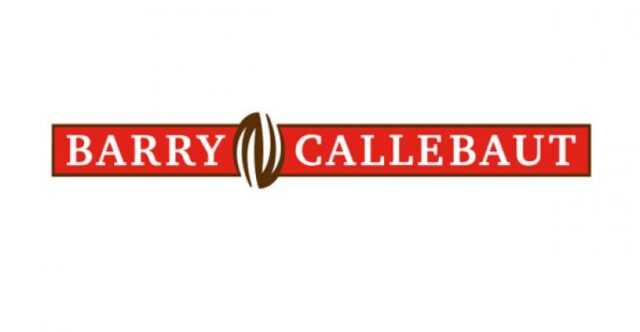ZURICH, Switzerland – The Barry Callebaut Group saw resilient sales volume of 2,279,811 tonnes (0.0% year-on-year) in fiscal year 2023/24 (ended August 31, 2024). Sales volume was down -1.2% in the fourth quarter, impacted by the phasing of customer purchases in Gourmet and decisive action to temporarily shut down the Toluca, Mexico facility proactively.
Global Chocolate saw +0.3% volume growth in fiscal year 2023/24, ahead of an overall declining chocolate confectionery market according to Nielsen (-1.1%). Volume development for Food Manufacturers (-1.5%) was impacted by soft demand from large global customers, partly offset by resilient performance for Private Label customers. Gourmet delivered +9.8% volume growth, with strong performance across geographies and market segments.
Looking at regional performance within Global Chocolate, Asia Pacific, Middle East and Africa (+5.2%) was the strongest contributor, with double-digit growth in the second half of the year supported by continued strong growth in India and improved performance in Indonesia. Volume in Western Europe (+0.8%) was solid as growth for Gourmet offset slower demand for Food Manufacturers. Latin America saw strong volume growth of +7.2% led by strong momentum in Brazil, particularly for Gourmet customers. Central and Eastern Europe (-1.2%) was impacted by lower volumes for several large global and regional customers. North America reported a volume decrease of -1.8%, driven by slower demand for large Food Manufacturers, while regional accounts and Gourmet saw continued momentum.
Global Cocoa saw a -1.4% decrease in sales volume, in the context of a significant increase in cocoa prices. Sales of cocoa butter and cocoa liquor were impacted by the supply constrained environment. Demand for cocoa powder remained robust, with particular strength in India and Indonesia.
The Barry Callebaut Group sales revenue increased +28.1% in local currencies (+22.6% in CHF), to CHF 10,386.3 million. The increase was driven by significant price increases to reflect the acceleration in cocoa bean prices, which Barry Callebaut manages through its cost-plus pricing model for the majority of its business.
Gross profit amounted to CHF 1,382.3 million, up +7.7% in local currencies (+2.5% in CHF), supported by the company’s cost-plus pricing model and mix.
Operating profit (EBIT) recurring amounted to CHF 704.4 million, increasing by +12.7% in local currencies (+6.8% in CHF). The strong increase reflected the pass-through of higher financing costs through the cost-plus model, which are offset below the EBIT level, as well as mix and initial BC Next Level cost savings. During the year, quality costs increased with proactive action to ensure customer service in the case of incidents as well as tightened testing regimes and quality control. EBIT recurring4 for Global Chocolate was CHF 725.5 million, up +14.3% in local currencies (+7.6% in CHF), similarly reflecting the strength of the Group’s cost-plus model. EBIT recurring4 for Global Cocoa was CHF 100.7 million, down -3.2% in local currencies (-6.0% in CHF). The decrease was a result of lower volumes in a supply constrained market as well as higher carry costs and futures rolling costs. The Corporate segment saw EBIT recurring4 of -121.8 million, down -7.9% in local currencies (0.3% in CHF). Recurring4 EBIT per tonne increased to CHF 309, up 12.7% in local currencies (+6.9% in CHF).
Operating profit (EBIT) reported amounted to CHF 446.1 million compared to CHF 659.4 million in the prior year, as a result of one-off BC Next Level operating expenses of CHF 264.5 million. Within this, CHF 171.4 million represent cash relevant non-recurring Next Level program and restructuring costs. Meanwhile, CHF 93.1 million of the one-off items were non-cash impairments and write-downs related to site closures.
Net profit recurring for the period amounted to CHF 417.5 million, down -2.0% in local currencies (-5.8% in CHF). Performance was impacted by the longer pricing cycle in the Gourmet business to fully pass-through accelerating costs, as well as higher quality costs. Net finance costs increased significantly to CHF -207.3 million, up from CHF -124.1 million in the prior year, mostly as a result of the higher debt level in the context of the cocoa bean price acceleration. On a recurring5 basis, income tax expense decreased to CHF 74.8 million from CHF 92.1 million in the prior-year period. This corresponds to an effective tax rate of 15.2% (prior-year period: 17.2%). The decrease in effective tax rate on a recurring basis mainly resulted from a somewhat more favorable mix of profit before taxes and the positive effect related to the Swiss Tax Reform that was introduced on January 1, 2020.
The Barry Callebaut Group net profit reported amounted to CHF 190.9 million, including one-off BC Next Level program expenses.
Net working capital increased to CHF 3,808.0 million, compared to CHF 1,466.2 million in the prior year. The increase was entirely due to the substantial negative impact from higher cocoa bean prices, given the long cycle between bean contracting and customer sales, as well as a significant increase in initial margins required by futures exchanges given the volatile environment.
Free cash flow declined to CHF -2,330.7 million, compared to CHF 113.0 million in the prior year. Operational improvements were driven by actions on planning and operational excellence, resulting in an improved cash conversion cycle. This was more than offset by the substantial cocoa bean price related working capital increase as well as BC Next Level program investments.
Net debt increased to CHF 3,818.0 million from CHF 1,308.7 million in the prior-year period. The increase is predominantly due to the CHF 2,696.7 million increase in inventory value due to the cocoa bean price acceleration.


















